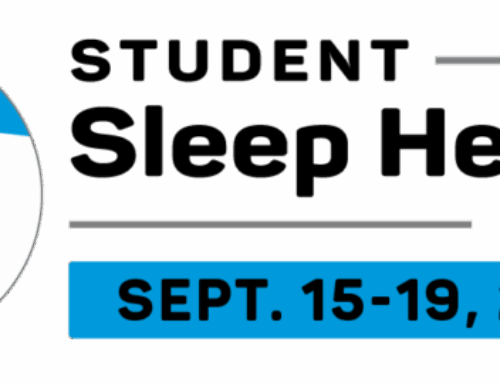FOR IMMEDIATE RELEASE
CONTACT: Lynn Celmer, 630-737-9700, ext. 9364, lcelmer@aasm.org
DARIEN, IL – A new study suggests that CPAP therapy reduces nightmares in veterans with post-traumatic stress disorder (PTSD) and obstructive sleep apnea (OSA).
Results show that the mean number of nightmares per week fell significantly with CPAP use, and reduced nightmare frequency after starting CPAP was best predicted by CPAP compliance.
“Patients with PTSD get more motivated to use CPAP once they get restful sleep without frequent nightmares, and their compliance improves” said principal investigator Sadeka Tamanna, MD, MPH, medical director of the Sleep Disorders Laboratory at G.V. (Sonny) VA Medical Center in Jackson, Miss.
The research abstract was published recently in an online supplement of the journal SLEEP, and Tamanna presented the findings at SLEEP 2013, the 27th annual meeting of the Associated Professional Sleep Societies LLC.
The study involved a retrospective review of medical records to identify OSA patients who also carried a PTSD diagnosis and were treated in a VA medical center sleep clinic between May 2011 and May 2012. Mean number of nightmares per week before treatment and up to six months after CPAP prescription were extracted. Treatment compliance was determined from CPAP memory cards.
“One out of six veterans suffers from PTSD, which affects their personal, social and productive life,” said Tamanna. “Nightmares are one of the major symptoms that affect their daily life, and prevalence of OSA is also high among PTSD patients and can trigger their nightmares.”
The American Academy of Sleep Medicine reports that obstructive sleep apnea is a common sleep illness affecting up to seven percent of men and five percent of women. It involves repetitive episodes of complete or partial upper airway obstruction occurring during sleep despite an ongoing effort to breathe. The most effective treatment option for OSA is continuous positive airway pressure therapy, CPAP, which helps keep the airway open by providing a stream of air through a mask that is worn during sleep.
According to the National Center for PTSD of the U.S. Department of Veterans Affairs, PTSD symptoms such as nightmares or flashbacks usually start soon after a traumatic event, but they may not appear until months or years later. Symptoms that last longer than four weeks, cause great distress or interfere with daily life may be a sign of PTSD. To get help for PTSD, veterans can call the Veterans Crisis Line at 1-800-273-8255 and press 1, text 838255, contact a local VA Medical Center, or use the online PTSD program locator on the VA website.
For a copy of the abstract, “Effect of continuous positive airway pressure (CPAP) therapy on nightmares in patients with post-traumatic stress disorder and obstructive sleep apnea,” or to arrange an interview with Dr. Tamanna or an AASM spokesperson, please contact AASM Communications Coordinator Lynn Celmer at 630-737-9700, ext. 9364, or lcelmer@aasm.org.
The American Academy of Sleep Medicine considers sleep disorders an illness that has reached epidemic proportions. Board-certified sleep medicine physicians in an AASM-accredited sleep center provide effective treatment. AASM encourages patients to talk to their doctors about sleep problems or visit www.sleepeducation.com for a searchable directory of sleep centers.




